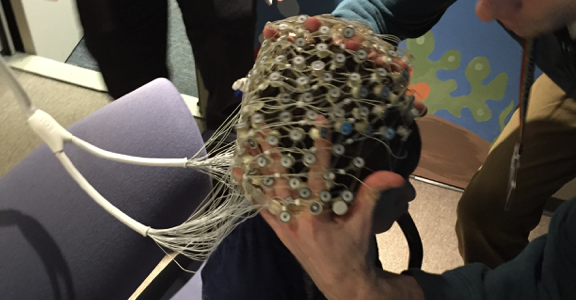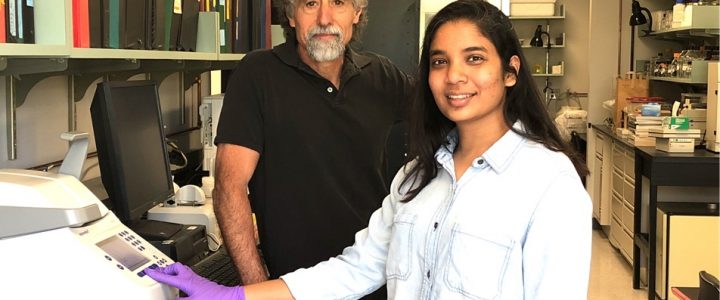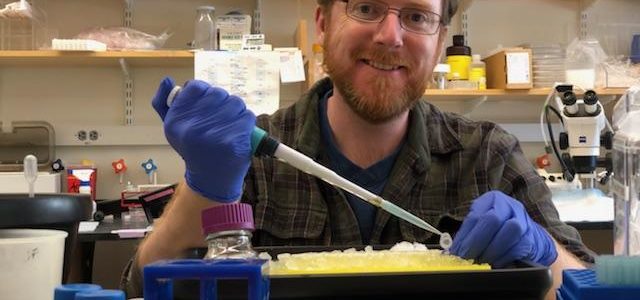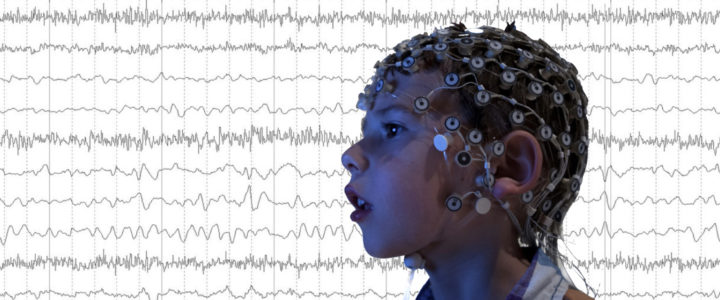FRAXA Research Foundation is dedicated to funding breakthrough research, providing $240,000 to reactivate the FMR1 gene to combat Fragile X Syndrome, with the goal of restoring vital protein function and advancing towards a cure.
Read morePierce Family Fragile X Foundation
Antisense Oligonucleotides (ASOs) to restore FMRP in Human Fragile X Cerebral Organoids

Explore Dr. Richter’s encouraging results with ASOs for Fragile X syndrome. A $100,000 grant now fuels pivotal studies needed to advance toward ASO therapy.
Read moreUnraveling Fragile X Syndrome: New Insights into FMR1 Gene Reactivation

Discover groundbreaking methods for reactivating the FMR1 gene in Fragile X syndrome. Dive into the transformational research and the implications of self-healing at a cellular level.
Read moreFragile X Clinical Trial of New PDE4D Inhibitor from Tetra

With a $200,043 grant from FRAXA Research Foundation, Dr. Elizabeth Berry-Kravis completed a successful Phase 2 clinical trial of a PDE4 inhibitor for adult men with Fragile X syndrome. This trial treated 30 males, 18-45 years of age with a new PDE4D allosteric inhibitor from Tetra Discovery Partners using a crossover design, so that everyone got active drug for part of the time and placebo for part of the time.
Read moreRecruiting: Clinical Study of Non-Invasive EEG for Children Ages 2-7

Dr. Carol Wilkinson, MD PhD, and Dr. Charles Nelson, PhD, at Boston Children’s Hospital are recruiting children ages 2-7 years with Fragile X syndrome to participate in a study of brain differences using non-invasive EEG.
Read moreAlternative Splicing in White Blood Cells: A Biomarker for Fragile X Syndrome

Explore groundbreaking research by the University of Massachusetts Medical School and Rush University Medical Center on alternative splicing in white blood cells as a biomarker for Fragile X syndrome, paving the way for personalized treatment optimization through a non-invasive blood test.
Read moreDeep Molecular Profiling of Fragile X Mouse and Human Cells

FRAXA Research Foundation has awarded $90,000 to Dr. Joel Richter, Principal Investigator, and Dr. Sneha Shah, Postdoctoral Fellow, at the University of Massachusetts Medical School. They are using human induced pluripotent stem (iPS) cells to analyze gene expression in Fragile X syndrome.
Read moreCorrecting Sensory Processing in Fragile X Mice by Modulating Kv3.1

FRAXA awarded a $90,000 grant to Carlos Portera-Cailliau, PhD and Nazim Kourdougli, PhD at UCLA to investigate whether a novel drug can rescue sensory processing deficits in Fragile X mice. People with Fragile X have similar problems in sensory processing. This new drug acts on Kv3.1, a promising Fragile X treatment target also being pursued by UK-based Autifony Therapeutics based on FRAXA-funded research done at Yale.
Read moreEnhancing NMDA Receptor Signaling to Treat Fragile X Syndrome

Dr. Stephanie Barnes investigated the role of NMDA receptors as a FRAXA Postdoctoral Fellow in Dr. Emily Osterweil’s laboratory at the University of Edinburgh from 2016-2018. With an additional year grant from FRAXA, she then continued her work to identify novel targets and test pharmacological therapies in the Fragile X mouse model at the Picower Institute at MIT with Dr. Mark Bear. Results published.
Read moreKathan Pierce Honored as a New England Patriots Difference Maker

FRAXA is proud to announce that one of our board members, Kathan Pierce, was recognized by the NFL’s New England Patriots and team owner Robert Kraft for her tireless volunteerism. We are grateful for Kathan’s contributions to FRAXA, and to the Patriots, who announced they are also awarding a $5,000 grant to FRAXA to support Fragile X research.
Read moreHope for the Holidays Gala Helps Advance Fragile X Research

On December 8, 2018, a sold-out crowd of 250 people gathered for the 3rd Annual Hope for the Holidays Gala at the Café Escadrille in Burlington, MA, to raise funds for Fragile X research. For the third year in a row, the Pierces presented a check for $100,000 to FRAXA Research Foundation. We are truly grateful for this ongoing, generous support of our mission to find effective treatments and ultimately a cure for Fragile X.
Read moreKathan Pierce Named Patriots Difference Maker of the Week!

FRAXA Board Member and co-founder of The Pierce Family Fragile X Foundation, Kathan Pierce, has been named this week’s 2018 Patriots Difference Make of the Week! This honor is given by the NFL’s New England Patriots Foundation.
Read morePharmacological Tolerance in the Treatment of Fragile X Syndrome

With a $90,000 grant from FRAXA Research Foundation over 2018-2019, Dr. Patrick McCamphill, postdoctoral fellow in Dr. Mark Bear’s lab at Massachusetts Institute of Technology (MIT), is investigating drug tolerance to mGluR5 antagonists, arbaclofen, and other potential Fragile X treatments. He is also exploring ways to overcome it.
Read moreFRAXA Funded Researchers Present at MA Fragile X Conference

On Saturday Boston Children’s Hospital (BCH) hosted a Fragile X educational conference. Success Strategies for Individuals and Families Impacted by Fragile X and two of our funded researchers, Dr. Craig Erickson, and Carol Wilkinson, MD, PhD, presented giving an update on their current Fragile X clinical trials. Both being funded by FRAXA.
Read moreTakeaways from Fragile X Advocacy Day

In the first week of March I attended my first Fragile X Advocacy Day to meet with many of the Massachusetts delegation to Congress. While this was my first time advocating for Fragile X research, I’ve been a longtime lung cancer research advocate and have met with many of the same representatives in the past. It was a pleasure to meet with many of the families as my participation in Advocacy Day was in the spirit of “we are all in this together”.
Read moreMicroRNA Mediated Astroglial GLT1 Dysregulation in Fragile X

Almost all brain research focuses on neurons – nerve cells. However, the brain has many more glial cells which support, nourish, and protect the neurons. FRAXA Research Foundation awarded a 2017 grant $90,000 to support Dr. Yang’s studies of how changes in glial cells contribute to Fragile X syndrome. This grant is funded by a grant from the Pierce Family Fragile X Foundation.
Read moreInvestigating Gene Reactivation to Treat Fragile X Syndrome

With a $180,000 grant from FRAXA Research Foundation from 2016-2017, Dr. Jeannie Lee and her team at Harvard are working to reactivate the gene that is silenced in Fragile X syndrome.
Read moreNeural Markers of Fragile X: A Powerful New Tool for Clinical Trials

Once the neural marker is identified for a particular challenge, such as kids with poor language versus good language, neural markers can be measured during drug and behavioral therapy trials to see if a child is improving based on objective biological measures.
Read moreA Developmental Switch Exists in the Effects of FMRP

With a $90,00 grant from FRAXA Research Foundation for 2010-2011, Dr. Kimberly Huber and her team at the University of Texas at Southwestern found that there is a developmental switch of postsynaptic FMRP on synaptic function. This switch is controlled by MEF2 transcriptional activity. Proper synapse maturation and elimination is crucial for the establishment of appropriate neural circuits that underlie sensory processing and cognition. Neuron of Fragile X patients as well as in the mouse model of Fragile X, Fmr1 KO mice, display more dendritic spines, the point of contact for excitatory synapses, as well as long and thin filopodia resembling immature spines. This suggests Fragile X mental retardation protein (FMRP) has a role in promoting synapse maturation and elimination.
Read more
